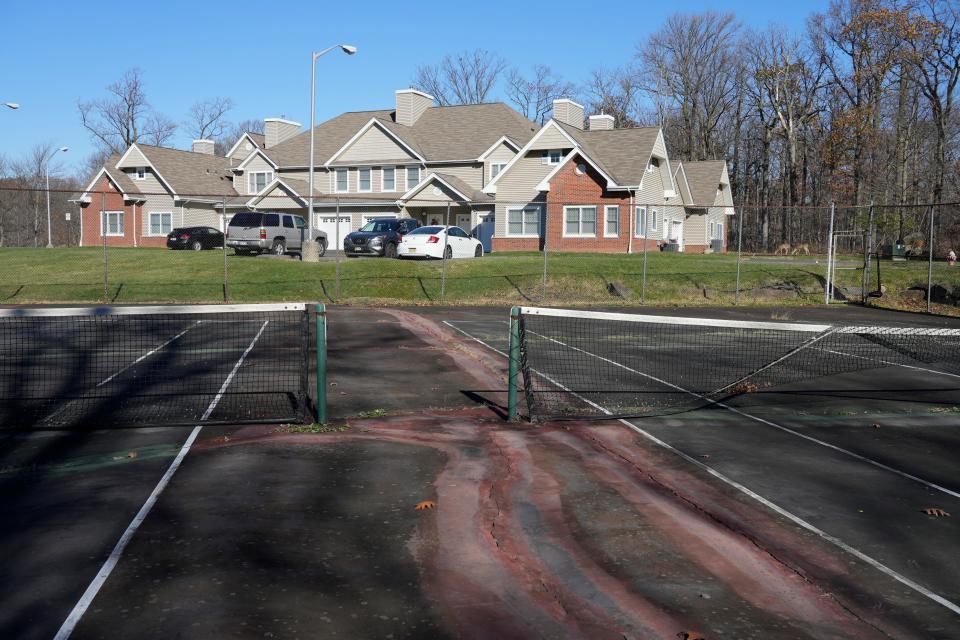I'm a member of the NJ Assembly. Legislators should control housing policy — not courts | Opinion
Home to the world’s busiest suspension bridge and traffic-jammed highways, Bergen County was just named the smoggiest county in the state by the American Lung Association.
Despite the dim distinction, the courts want to add more cars to our roads by forcing municipalities to take on massive high-density housing projects in the name of affordability.
Unfortunately, Democrats have made court-mandated housing a social justice issue instead of a cost-of-living one. And some people are buying that this kind of housing is needed not because of how expensive it is to live in New Jersey, but solely because of racial and ethnic inequity. What they are failing to recognize, or choosing to ignore, is that unreasonable housing quotas will stress existing infrastructure and further pollute the air.
Because the definition of affordable in New Jersey is lost on most Democrats, and builders only have to dedicate 20% of their construction to lower-income families, towns are being burdened by projects that completely overwhelm everything from schools to sewer systems.

Municipalities have struggled to comply with affordable housing obligations for a half century. It’s part of the reason the state Supreme Court astoundingly ruled in 2015 to take over the process from the Council on Affordable Housing, which was under the purview of the executive branch.
Putting the power in the courts allowed builders and the nonprofit Fair Share Housing Center to sue municipalities based on private assumptions of public housing needs.
The legal mechanism known as the “builder’s remedy” forces towns zoned for 100 apartments to build 500 so developers can make a profit off the 400 market-rate units. An estimated 250,000 homes could be built over the next few years because of the builder’s remedy, which puts profits over public welfare, promotes sprawl, and of course exacerbates smog.
Jack Ciattarelli: We can do better than Mount Laurel. Where NJ must go on affordable housing
More perspective: Affordable housing can benefit all of us in New Jersey. Protect Mount Laurel | Opinion
If a town doesn’t want to be subject to the builder’s remedy, the municipality will most likely be subjected to a lawsuit from the Fair Share Housing Center, which uses its own hazy numbers to advance so-called affordable housing.
The last court ruling in 2018 determined New Jersey needs more than 305,000 low-income homes. That would require an almost 30% population increase. However, an estimated 64,231 residents, mostly from North Jersey, moved out between July 1, 2021, and July 1, 2022.
Out of the state’s 19 counties, Bergen County has the second highest number of pediatric asthma patients, and the most residents living with chronic inflammatory lung disease and lung cancer, and ranks top for adults age 65 and older. Residents don’t need more air pollution. They need a less expensive New Jersey.
Since Gov. Phil Murphy took office in 2018, the income limit for a family of four to qualify for low-income housing jumped $17,500 — from $71,900 to $89,400. The U.S. Department of Housing and Urban Development defines cost-burdened families as those who pay more than 30% of their salaries on housing – middle-class New Jerseyans pay about 45%.
Moreover, municipalities are burning taxpayer dollars in court battles. During a recent Assembly budget hearing, even Judge Glenn A. Grant, who is in charge of running the courts in New Jersey, said that it would be smarter to let the Legislature handle the problem of cheap housing.
Since the courts took over, the state hasn’t kept track of how many affordable homes have been or are being built. It is shocking that we have no better estimate than about 22,000 since 2015 from the Fair Share Housing Center.
In 2025, municipalities’ housing obligations for another decade will be reevaluated. This will happen without clear and comprehensive numbers on what has been done so far, or the impacts. The deadline looms, although towns have experienced pandemic-related construction interruptions and rising costs.
Other than the commonsense solution of clearing up this mess now, we should at least delay implantation of a fiasco. Halting the process until 2028, as proposed by my colleague Assemblyman Alex Sauickie, would provide the Legislature with the opportunity to clarify the best method for determining affordable housing numbers.
The representatives that espouse their disdain for overdevelopment by day and represent the builders’ interest in the dark of night should be voted out at the next election and judged guilty of unintended detrimental consequences.
Giving municipalities a little more room to breathe so they aren’t forced to pay for costly litigation, while also allowing for a clearer picture of low-income housing stock, is the next best step toward a more affordable and cleaner New Jersey for all.
Assemblyman Robert Auth represents parts of Bergen and Passaic counties in the 39th Legislative District.
This article originally appeared on NorthJersey.com: NJ affordable housing policy must be led by lawmakers, not courts

